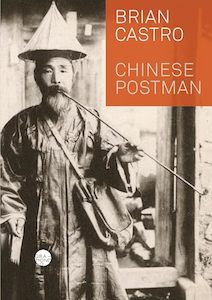Chinese Postman

NB: This is a secondhand book in very good condition. See our FAQs for more information. Please note that the jacket image is indicative only. A description of our secondhand books is not always available. Please if you have a question about this title.
Author: Brian Castro
Format: Paperback
Number of Pages: 262
Abraham Quin is in his mid-seventies, a migrant, thrice-divorced, a one-time postman and professor, a writer now living alone in the Adelaide Hills. In The he reflects on his life with what he calls 'the mannered and meditative inaction of age', offering up memories and anxieties, obsessions and opinions, his thoughts on solitude, writing, friendship and time. He ranges widely, with curiosity and feeling, digressing and changing direction as suits his experience, and his role as a collector of fragments and a surveyor of ruins. He becomes increasingly engaged in an epistolary correspondence with Iryna Zarebina, a woman seeking refuge from the war in Ukraine. As the correspondence opens him to others, the elaboration of his memories tempers his melancholy with a playful enjoyment in the richness of language, and a renewed appreciation of the small events in nature. This understanding of the experience of old age is something new and important in our literature. As Quin comments, 'In Australia, the old made way for the young. It guaranteed a juvenile legacy.'
0
0
Author: Brian Castro
Format: Paperback
Number of Pages: 262
Abraham Quin is in his mid-seventies, a migrant, thrice-divorced, a one-time postman and professor, a writer now living alone in the Adelaide Hills. In The he reflects on his life with what he calls 'the mannered and meditative inaction of age', offering up memories and anxieties, obsessions and opinions, his thoughts on solitude, writing, friendship and time. He ranges widely, with curiosity and feeling, digressing and changing direction as suits his experience, and his role as a collector of fragments and a surveyor of ruins. He becomes increasingly engaged in an epistolary correspondence with Iryna Zarebina, a woman seeking refuge from the war in Ukraine. As the correspondence opens him to others, the elaboration of his memories tempers his melancholy with a playful enjoyment in the richness of language, and a renewed appreciation of the small events in nature. This understanding of the experience of old age is something new and important in our literature. As Quin comments, 'In Australia, the old made way for the young. It guaranteed a juvenile legacy.'
×
